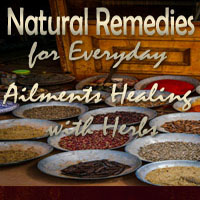


A Journey To Authentic Self

In the hustle and bustle of our fast-paced lives, it's easy to lose touch with our true selves. Reconnecting with your essence is a profound journey of self-discovery, self-acceptance, and authenticity. It's about peeling away the layers of conditioning and societal expectations to rediscover the core of who you are.
Understanding Your Essence
Your essence is the authentic, unaltered you. It's the sum of your beliefs, values, passions, and unique qualities. Reconnecting with your essence means aligning with your innermost self, living in harmony with your values, and expressing your true identity.
The Importance Of Reconnection
In today's world, external influences can often lead us away from our authentic selves. We may find ourselves trying to conform to societal norms, meet the expectations of others, or follow trends that don't resonate with our true desires. This can result in feelings of disconnection, inner conflict, and a lack of fulfillment.
The Journey To Reconnection
Reconnecting with your essence is a transformative journey. It involves the following steps:
Self-Exploration: Begin by asking deep and meaningful questions about who you are and what truly matters to you. Self-reflection is a powerful tool in understanding your essence.
Identify Your Values: Your values are the core principles that guide your life. Recognizing and living in alignment with your values is essential to reconnecting with your essence.
Let Go Of External Expectations: Release the need to conform to societal or external expectations. Allow yourself to be who you are without fear of judgment.
Embrace Your Passions: Identify your passions and interests. Engage in activities that bring you joy and a sense of fulfillment.
Practice Mindfulness: Mindfulness techniques, such as meditation and deep breathing, can help you stay present and in tune with your inner self.
Acceptance And Self-Love: Accept yourself unconditionally, flaws and all. Self-love is the foundation of authentic self-expression.
Benefits Of Reconnection
Reconnecting with your essence has numerous benefits:
Authentic Living: You will have a deeper understanding of who you are and the ability to live authentically.
Fulfillment: Living in alignment with your essence brings a profound sense of fulfillment and purpose.
Reduced Stress: Letting go of external expectations and living authentically can reduce stress and anxiety.
Stronger Relationships: Authenticity in your interactions with others can lead to more meaningful and genuine connections.
Inner Peace: Reconnecting with your essence often results in a sense of inner peace and harmony.
The journey to reconnect with your essence is a lifelong endeavor, but it is one that leads to a life filled with purpose, fulfillment, and inner peace. It is a journey that enables you to express your true self, unburdened by the expectations of others. By understanding your values, embracing your passions, and practicing self-acceptance, you can embark on a transformative path towards living as your most authentic and genuine self.
A Path To Emotional Well-Being
 Understanding Self-Compassion
Understanding Self-Compassion
Self-compassion is a concept developed by psychologist Dr. Kristin Neff and is built upon three core components:
Self-Kindness: Self-compassion involves being warm and understanding toward oneself in moments of difficulty or pain. Instead of harsh self-criticism, individuals practice self-kindness, offering words of comfort and reassurance.
Common Humanity: Recognizing that suffering is a universal human experience is another essential aspect of self-compassion. People often feel isolated in their pain, believing they are alone in their struggles. Self-compassion reminds us that we are not alone; others experience similar challenges.
Mindfulness: Self-compassion encourages individuals to approach their pain and suffering with mindfulness, without judgment. This means being present with one's emotions and experiences, acknowledging them without negative self-talk.
The Benefits Of Self-Compassion
Improved Mental Health: Research has consistently shown that self-compassion is associated with lower levels of depression, anxiety, and stress. By practicing self-compassion, individuals are better equipped to manage difficult emotions and maintain their mental well-being.








Discovering A World Of Benefits
 Improved Digestion: Many people report better digestion when they adopt a gluten-free diet. This is particularly true for those with non-celiac gluten sensitivity, who may experience less bloating, gas, and abdominal discomfort.
Improved Digestion: Many people report better digestion when they adopt a gluten-free diet. This is particularly true for those with non-celiac gluten sensitivity, who may experience less bloating, gas, and abdominal discomfort.
Increased Energy: Eliminating gluten from your diet can lead to increased energy levels. When your body no longer has to deal with the inflammation and digestive distress caused by gluten, you may find yourself feeling more energetic and alert.
Better Skin Health: Gluten sensitivity is often linked to skin conditions such as eczema and psoriasis. Going gluten-free may lead to healthier, clearer skin.
Weight Management: While gluten-free doesn't necessarily mean low-calorie, many people find that they naturally reduce their calorie intake when they eliminate gluten-containing foods. This can be beneficial for weight management and achieving a healthier body composition.
Balanced Blood Sugar: A gluten-free diet can help maintain more stable blood sugar levels, which is beneficial for individuals with diabetes or those looking to reduce their risk of developing the condition.
Reduction In Inflammation: Gluten has been associated with inflammation in the body, and reducing or eliminating it from your diet may help manage chronic inflammatory conditions like arthritis.
Improved Nutrient Intake: When transitioning to a gluten-free lifestyle, many individuals become more conscious of their food choices. This often leads to a diet that's higher in nutrient-rich, whole foods such as fruits, vegetables, lean proteins, and gluten-free grains like quinoa and rice.
A Journey To Inner Strength
 Emotional Regulation: Self-reflection allows individuals to recognize their emotional responses to challenging situations. This awareness is the first step in regulating and managing those emotions effectively.
Emotional Regulation: Self-reflection allows individuals to recognize their emotional responses to challenging situations. This awareness is the first step in regulating and managing those emotions effectively.
Self-Awareness: Self-reflection helps individuals gain a deeper understanding of their strengths, weaknesses, and triggers. This self-awareness can be pivotal in developing a resilient mindset.
Learning From Experiences: Reflecting on past experiences, especially adversity, provides an opportunity for growth and learning. It allows individuals to extract valuable lessons from setbacks and difficulties.
Improved Problem-Solving: Through self-reflection, individuals can evaluate their problem-solving approaches and adapt them to better tackle future challenges.
Practical Steps For Building Resilience Through Self-Reflection
Journaling: Maintain a journal to record your thoughts, emotions, and experiences. Regularly writing down your reflections on daily events can help you identify patterns in your behavior and thought processes.
Mindfulness Meditation: Engage in mindfulness meditation practices to cultivate awareness of the present moment. This can help you develop a deep understanding of your thoughts and emotions and promote emotional regulation.
Regular Self-Check-Ins: Dedicate time for self-check-ins throughout the day. Pause to ask yourself how you're feeling, what's on your mind, and how you're reacting to various situations.
Nourishing Your Body And Mind
 Avocado: Creamy and rich in monounsaturated fats, avocados are not only a delightful addition to your meals but also an excellent source of stress-fighting nutrients. They contain B vitamins and potassium, which help lower blood pressure and reduce stress.
Avocado: Creamy and rich in monounsaturated fats, avocados are not only a delightful addition to your meals but also an excellent source of stress-fighting nutrients. They contain B vitamins and potassium, which help lower blood pressure and reduce stress.
Berries: Blueberries, strawberries, and other berries are chock-full of antioxidants that combat oxidative stress. These antioxidants can help protect your body's cells from the damage caused by chronic stress.
Dark Chocolate: Dark chocolate in moderation can be a comforting treat and is known to trigger the release of endorphins, the body's natural stress relievers. It also contains flavonoids, which have been linked to lower stress levels.
Fatty Fish: Salmon, mackerel, and trout are high in omega-3 fatty acids, which have been shown to reduce stress and anxiety. These healthy fats are essential for brain health and mood regulation.
Leafy Greens: Greens like spinach and kale are rich in magnesium, a mineral that can help regulate cortisol, a hormone associated with stress. Consuming more magnesium can have a calming effect on the body.
Nuts: Almonds, walnuts, and pistachios are packed with nutrients, including B vitamins and healthy fats, which are known to reduce stress and support overall mental well-being.
Turmeric: The active compound in turmeric, curcumin, has anti-inflammatory and antioxidant properties. These qualities can help combat stress and reduce the risk of depression.
Oats: Oats are a complex carbohydrate that can boost serotonin production in the brain. Serotonin is a neurotransmitter that plays a key role in mood regulation and can help reduce stress.
Finding Tranquility In Scents
 Understanding Aromatherapy
Understanding Aromatherapy
Aromatherapy is an age-old practice that harnesses the therapeutic properties of essential oils, which are concentrated extracts derived from various plants. These oils contain a wide range of natural compounds, each with its unique fragrance and healing potential. When inhaled or applied to the skin, essential oils can have a profound impact on our bodies and minds, making them a valuable tool for managing stress.
Calming The Mind And Body
Aromatherapy promotes stress relief by calming the mind and body. Essential oils such as lavender, chamomile, and bergamot are known for their relaxing and anxiety-reducing properties. The mere inhalation of these fragrances can trigger a sense of calm, slowing the racing thoughts and soothing frayed nerves. This immediate effect on the mind sets the stage for holistic stress relief.
Physical Relaxation
Stress often manifests physically, leading to tense muscles, headaches, and other discomforts. Aromatherapy can alleviate these physical symptoms by encouraging relaxation. Oils like eucalyptus and peppermint can ease muscle tension and relieve headaches, providing a sense of physical well-being that complements the emotional aspect of stress relief.
Emotional Balance
Emotions are closely linked to stress, and aromatherapy can help restore emotional equilibrium. Scents like rose and ylang-ylang are known for their mood-enhancing qualities, uplifting the spirits and promoting emotional balance. This emotional support is a crucial component of comprehensive stress relief.
Mental Clarity
Stress can cloud our minds and hinder our ability to focus and think clearly. Aromatherapy offers a solution by enhancing mental clarity and reducing mental fatigue. Oils like lemon and rosemary are particularly effective at improving cognitive function, helping us regain control over our thoughts and actions.
 3. Legumes And Pulses: Legumes, such as lentils, chickpeas, and beans, are excellent sources of plant-based protein, fiber, and essential vitamins. They make versatile and nutrient-rich additions to gluten-free meals, contributing to body nourishment.
3. Legumes And Pulses: Legumes, such as lentils, chickpeas, and beans, are excellent sources of plant-based protein, fiber, and essential vitamins. They make versatile and nutrient-rich additions to gluten-free meals, contributing to body nourishment.
4. Nutrient-Dense Snacks: Gluten-free snacking doesn't have to mean indulging in processed chips and sugary treats. Opt for nutrient-dense snacks like nuts, seeds, Greek yogurt, or gluten-free granola to keep your energy levels steady and nourish your body between meals.
5. Gluten-Free Baking: Gluten-free flours, like almond flour, coconut flour, and tapioca flour, can be used to make delicious baked goods. You can still enjoy muffins, pancakes, and cookies while nourishing your body and avoiding gluten.
6. Lean Proteins: Protein is vital for muscle health and overall well-being. Incorporate lean proteins like poultry, fish, tofu, and legumes into your diet to ensure that your body receives the necessary amino acids.
7. Dairy Or Dairy Alternatives: Dairy products like milk, cheese, and yogurt (if tolerated) provide calcium and protein. If you're lactose intolerant or choose to avoid dairy, there are various dairy alternatives available, such as almond milk or coconut yogurt.
8. Micronutrients: Pay attention to getting a variety of micronutrients in your gluten-free diet. Vitamins and minerals are crucial for overall health. Make sure your meals include a spectrum of colorful fruits and vegetables to maximize the diversity of nutrients your body receives.
9. Hydration: Proper body nourishment includes staying well-hydrated. Water is essential for digestion, circulation, and overall health. It's gluten-free and a fundamental part of maintaining your well-being.
10. Mindful Eating Practices: Nourishing your body on a gluten-free diet also involves mindful eating practices. Pay attention to your body's hunger and fullness cues. Eating mindfully allows you to enjoy your food and make healthier choices.